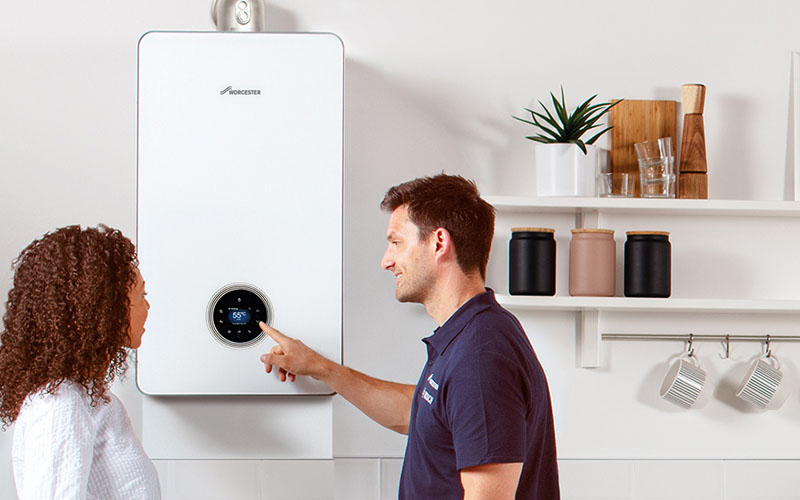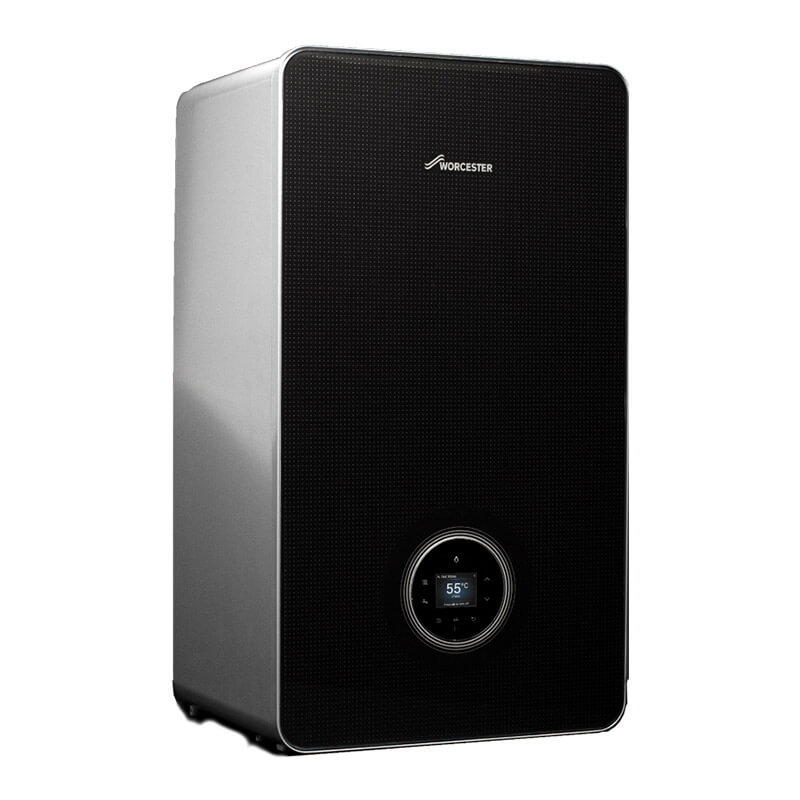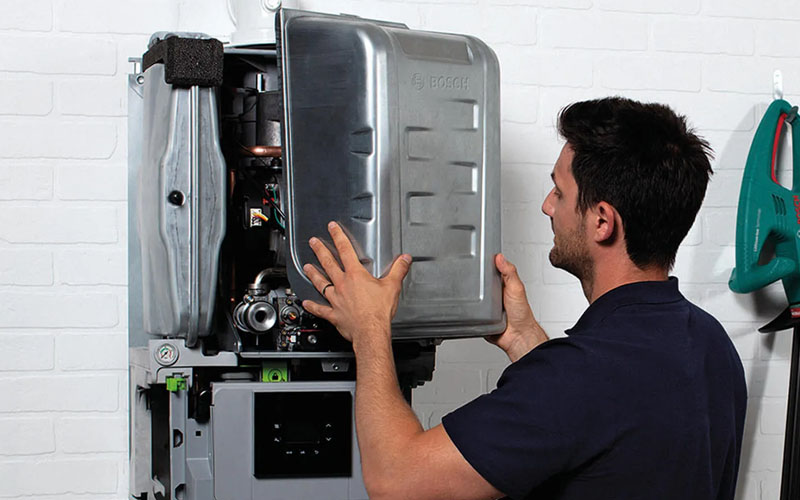Manage Your Heating Controls









Keep Your Home Warm
Heating controls allow you to keep your house suitably warm, comfortable and control heating and cooling without overheating and wasting energy. You might reduce your carbon emissions and save money on your heating bills by installing and utilizingutilising your heating controls properly.
How Heating Controls Work?
Heating controls, which help control when the heating should be on and what temperature your rooms should be, are a wide category that includes timers, thermostats, pipes, and electrical components. Traditional mechanical heating controls can be manually adjusted, or there are internet-connected controls that can learn your patterns and change the settings for you. Heating controls help us manage the heat in our homes by constantly improving.


Which Thermostat Settings Should I Have?
Central heating systems like boilers and heat pumps should have a programmer (time control), at least one room thermostat, and thermostatic radiator valves if you have radiators as bare minimum components (TRVs). In systems that utilise hot water cylinders, a cylinder thermostat ought to be applied. Modern heating systems may come with a variety of control functions to make using them more effective and efficient.
Need Heating Control in Derby?
Do not wait to address any plumbing or drainage issues you suspect may exist in your home. Get in touch with our team as soon as possible if you reside in Derby or the nearby areas.

Upgrade Without Replacing Boiler
Without replacing your boiler, you can upgrade or install new heating controls. If your heating system doesn't have a programmer, at least one room thermostat, or TRVs on the radiators, you should think about replacing it. Modern thermostats, for instance, have more precise temperature sensors, and many smart controls have added energy-saving features.
How Does My Heating Control Work?
There are various kinds of heating controls, so it's best to check with your installer or read the manufacturer's manual for particular instructions. If you don't already have a copy on hand, you can typically get user manuals online by simply typing the name of the manufacturer's name into a search engine. Below, we've provided a list of some typical functions.

Programmer (timer)
You may regulate when you’re heating and managing hot water turn on and off settings using a timer or programme.
This is advantageous since it allows you to schedule your central heating to sync up with how your house is used. You can set the heating system to turn off at certain times if you're not home or don't need it to be heated at night.
- Single channel- For use with combi boilers. As hot water is only available when it is needed, this solely regulates central heating.
- Two-channel boilers can regulate the heating and hot water in a single zone, or they can control the heating in two distinct zones (for example, upstairs and downstairs), using combi boilers.
- Three channel - for system or conventional boilers, managing two distinct heating zones and hot water.
Programmable room thermostats
You may set various temperatures for various times of the day with a programmable room thermostat, which combines time and temperature settings in one device. Instead of using a single programmer for the entire house, some heating systems may employ two programmable thermostats (one upstairs and one below).
Thermostats
These keep your house from heating up more than it needs to. When the room reaches the temperature you've set, they turn on the heating, then turn it off until the temperature falls.
Room thermostats require a free flow of air to sense temperature; as a result, they shouldn't be positioned near heat sources that could cause them to read temperatures incorrectly, or be blocked by furniture or drapes.
The lowest comfortable setting on your room's thermostat should be between 18 and 21 degrees Celsius. The heating expense will go up by around 10% for every degree you raise the temperature if you only have one room thermostat for the entire house.
Thermostatic Radiator Valves
In contrast to conventional boiler controls, thermostatic radiator valves (TRVs) regulate the flow of hot water through the radiator to which they are attached. They function by detecting the surrounding air's temperature. The valve will slightly close if the room is warmer than the TRV's temperature setting, lowering the amount of hot water flowing into the radiator. The valve opens to allow more hot water to flow into the radiator if the ambient temperature is lower than the TRV's setting.
TRVs can be turned clockwise or counterclockwise to change their settings. Normally, they are marked with a scale from 0 to 6, with 0 denoting off and 6 denoting fully open. Choose the lowest level that will maintain the desired temperature in the room. Lower settings use less energy and save you money by reducing the amount of hot water that is produced. TRVs can also be used to totally switch off the radiator in a room when no one is in it or to keep the temperature at a set minimum to keep the space just warm enough to keep mould from growing.
Hot Water Thermostats (cylinder thermostats)
Hot water cylinders were previously heated without regard to time or temperature whenever the heating was on. If you don't already have one, installing a hot water cylinder thermostat could help you use less energy to heat water.
The thermostat keeps the cylinder from heating up more than it should. The heat feed from the boiler will be cut off once the water reaches the desired temperature. The water won't heat up any faster by turning the thermostat up.
Typically, cylinder thermostats are installed halfway up to three quarters of the way up the cylinder. The recommended setting for their marked temperature scales is between 60°C and 65°C. Although this is hot enough to scorch skin, it is also hot enough to kill hazardous bacteria in the water.
Smart Heating Controls
Smart heating controls, which are more advanced central heating management systems perform all of the functions of traditional controls, utilising a programmer (timer) to regulate when the heating is on or off and thermostats to regulate the temperature in your home. Smart controls, on the other hand, have an internet connection and provide greater capability.
- Time and temperature controls that are simple to operate and have user-friendly interfaces make it easier to inspect and adjust the heating and hot water system on/off times.
- Enabling you to adjust the temperature and turn the system on or off when away from home using your smartphone.
- Utilize "geo-fencing" on your smartphone to keep track of your whereabouts. The heating system will start up when you get home from work and heat the house or provide hot water in time for your arrival.
Even if you don't think you'll use features like geo-fencing, having a system that can figure out your routines and change schedules to reduce energy use requires relatively little input from you once the system is set up. Your lifestyle and the way you now manage your heating will determine whether or not smart heating controls will save you money.
Weather Compensation
Lower boiler thermostat settings utilise less energy, which could help you save money and cut down on carbon emissions. You might lower the boiler's thermostat when the weather is mild and still feel comfortable. To ensure that your home can get warm enough when it gets colder, the boiler thermostat might need to be raised once again. This is automatically done by a weather compensator, which gauges the ambient temperature and modifies the boiler thermostat's setting as necessary.
Load Compensation
The house could be very cold before the heating switches on. The boiler thermostat can be raised to raise the water temperature delivered to your radiators and therefore swiftly heat your home. A radiator's ability to quickly heat a space depends on its temperature. The temperature may only need to be raised a few degrees. You run the risk of overheating your home if you heat a room too quickly with the boiler thermostat still set high and the radiators still very hot. In order to prevent overheating of the boiler, a load compensator compares the internal air temperature to the temperature that is set on your room thermostat.
Programmable TRVs
Like regular TRVs, these are temperature controls for individual radiators, but they also have timing controls. They enable you to only heat a room when you want to by allowing you to arrange each radiator to turn on at a different time. You can create a new zone for each room by connecting some models to smart heating controls through Wi-Fi.
Boiler Interlock
You should have a programmer, a room thermostat, and a cylinder thermostat if you have a system or conventional boiler with a hot water cylinder. These devices should be linked together to form a "boiler interlock," which causes the boiler to shut off when the heating and hot water thermostats reach their predetermined temperatures. The boiler can keep running even when no heat is needed if there is no interlock. Building regulations mandate the interlocking of all new and replacement systems.
Zone Controls
The majority of homes seek to heat various spaces at various times of the day. Individual radiators can be turned on and off at different times by using TRVs to accomplish this, but many people never get around to it.
By using separate heating circuits for each area of the house, each with its own time schedule, zone control automatically takes care of this for you. There are typically two zones here—one above and one downstairs, however there could be more. For instance, homes with underfloor heating may occasionally have a room thermostat for each room, essentially creating a zone for each room.
Why choose us?
Fixed price cooker installation
We offer a fixed price Gas Cooker installation service
Same day Cooker Fitting service
We will provide a same day Gas Cooker installation service (*subject to availability).
Gas safe registered engineers
Our gas engineers are Gas Safe Registered and highly trained Gas Cooker fitting experts.
Looking for the very best in plumbing and heating service providers in the East Midlands? As our name suggests, East Midlands Gas – Plumbing & Heating specialists are the experts for you in Derby, Nottingham and Burton on Trent.
We are an experienced team of plumbers and heating engineers. If you’re looking for a reliable plumbing and heating company in Derby who’ll deliver quality workmanship without over charging you, then you’ve come to the right place!
Google Reviews
-
Booked my cooker installation within a short period of time, the engineer came out 4 days earlier to help get me moved into the property 🙂 everyone I spoke to... read more was very polite and kind. They gave me lots of advice and info. Thankyou for your service 🙂
Melissa Linley
April 26, 2024 -
We are very happy with the new Wocester bosch boiler installation together with power flushing of the existing old radiators. The engineers worked really hard to complete the... read more job to a very high standard and cleaned up when they finished. We will definitely be using them for our annual servicing for the boiler guarantee and can highly recommend their services.
Ali Wembley
April 26, 2024 -
Asif installed my gas hob on short notice, excellent and professional service and done in a reasonable time, price was also very competitive. I will be using him again highly... read more recommended!!
shabir shah
April 20, 2024 -
Gas cooker installation in derby have had a bit it and couldn’t be more happy with how the jobs gone has made sure it’s all secure and will definitely be... read more recommending you guys to friends and family much appreciated
keegan Kerry
April 13, 2024 -
Recently installed my new Worcester bosch green star combi boiler brothers did real fantastic job they came on time they fixed everything and it was all so smooth installation and... read more no mess and fuss anywhere I highly recommend east Midlands gas & plumbing for very well customer service they were nice and polite and suggested what needs doing and all thanks 😊
Tanisha Gijare
March 27, 2024 -
Came to install a Worcester boiler after our old one stopped working. We live in the Burton area. They are very friendly and determined to get everything perfect. Highly recommend... read more them for all your gas and plumbing needs 🙂
Ceroar
March 27, 2024 -
I found them in google, called other places as well but this was the optimal option for me, glad that found them. I needed a gas cooker installed. Very good... read more service, quick and most important very well done. I only can say that I am very happy for the service.
drainwave
February 27, 2024
Areas we cover for Heating Control
We’ve got locally based teams of certified gas-safe registered gas cooker fitters, ready to assist you across the East Midlands, regardless of whether you’re a homeowner, tenant, landlord or business proprietor that requires a new gas cooker installation or replacement.
Derby | Nottingham | Leicester | Burton upon Trent | Belper| Ripley | Spondon | Little Eaton | Ilkeston | Beeston | Shardlow | Ockbrook | Little Eaton | Duffield | West Hallam | Chesterfield | Ashby-de-la-Zouch | Repton | Kegworth |
